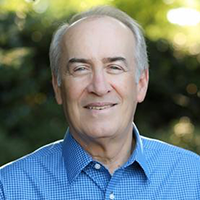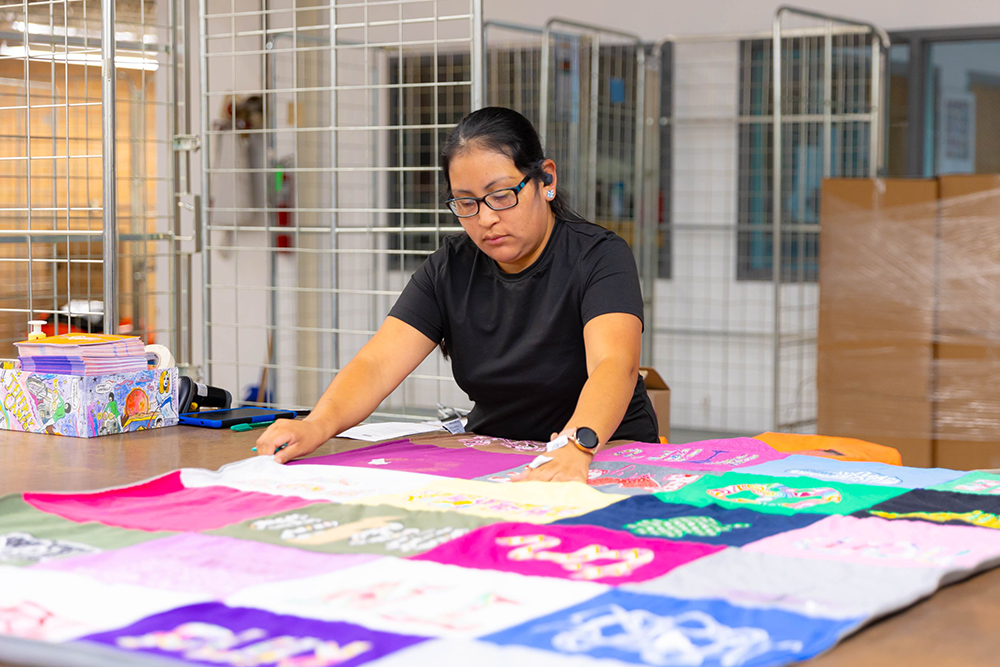
In a new issue of the Principle 6 Newsletter, republished below, Mike Mercer considers how credit unions—and the broader cooperative community—should approach increasingly divisive politics in the U.S. While credit unions are not ideologically beholden to either Democrats or Republicans, should they have something to say about “destructive political polarity”?
“What if credit unions found visible ways to illustrate non-partisanship and good citizenship?” the former president and CEO of Georgia Credit Union Affiliates and 2020 inductee to the Cooperative Hall of Fame writes.
Read the full issue of Principle 6 Newsletter below. And while you’re thinking about “cooperation among cooperatives,” take a moment to consider how you and your cooperative practice this principle. NCBA CLUSA is on a mission to document Principle 6 collaborations across the country so we can identify trends, document best practices and share this knowledge with you—our fellow cooperators!
Share your example of Principle 6
Principle 6 Newsletter – Destructive Polarization
Issue 9 – November 12, 2020
This election has once again shown that America is a divided nation. Many of its politicians set out to feed the divisions. – “When Every Vote Counts,” The Economist, 11-5-20
Although I’ve had my doubts at times about the effectiveness of fact-checking, that exhausting work has been invaluable. Without the reality-based press, whatever its flaws and shortcomings, we would be utterly lost. – Margaret Sullivan, “Perspective,” Washington Post, 11-8-20
We need to restore the stigma to lying and liars before it is too late. We need to hunt for truth, fight for truth and mercilessly discredit the forces of disinformation. It is the freedom battle of our generation. – Thomas Friedman, “Only Truth Can Save Our Democracy,” New York Times, 11-10-20
We have a choice. We can either continue to perpetuate toxic politics, or we can work together to build a better future. We can either try to score points on social media or we can come together to solve problems and make life better for all Americans. We can either move forward together, or we can continue to slide backward, divided. – Larry Hogan, Governor of Maryland, Wall Street Journal Commentary, 11-7-20

We live in a time (and place) of exceptional polarity in government and ideology. And the schism in ideology is framed and fueled by heavily biased (and routinely untruthful) information feeds to American voters. Election doesn’t go your way… Russian manipulation. Next time, when the other guys win… voter fraud! Two Georgia senatorial incumbents trying to win January runoff elections demonize the state attorney general… of their own party! Petty, unbecoming, destructive… the antithesis of greatness.
Good thing this kind of irreconcilable tribalism doesn’t happen among credit union people. After all, credit unions are co-ops. With principles and values… and inclusive, purpose-driven leaders. People helping people. Solidarity. Righteous goodness!
Well… destructive polarity could emerge within. Some of those seeds (weeds) could already be sprouting. Witness some of the early vestiges of internal practice and policy polarity…
- “small credit unions should be euthanized” vs “just turn the big credit unions into banks…they ruin it for the rest of us”
- “a better bank” vs “not a bank”
- “community bank with a tax exemption” vs “democratic, not-for-profit structure that deserves a tax exemption”
- “anyone can join” vs “non-overlapping, exclusive member eligibility”
- “local brand” vs “institutional reputation”
- “member well-being above all else” vs “institution first…do well to do good”
- “equity belongs to the members” vs “equity belongs to the institution”
There are others. Fortunately, credit union polarities have not yet threatened the outward appearance of formidable unity. Both tribes in federal government consider the credit union system to be among the most effective lobbying constituencies that darken their doors on a regular basis. Despite sending representatives from multiple national associations, numerous state associations and others to paint the credit union picture on Capitol Hill, U.S. credit unions have not become ideologically beholden to either of the major parties.
Thought Framers know that “divided we fall.” An opportunity is never missed by a trade association exec to extoll the virtues of common message… and the cooperative behaviors to back it up. Most recently, Jim Nussle in CUInsight, who wrote “It’s time for credit unions to come together.” There’s not much else that needs to be said about the dangers of internal irreconcilable polarity. Prune the weeds, water the seeds of solidarity. Got it.
But, what about the destructive political polarity that divides members (and society) so severely? Should credit unions and other co-ops have something to say (or do) about that?
The safe thing is to just stay out of it. Provide good service. Don’t discriminate. Give folks reliable advice. Keep the costs down. To a large degree, this has been the approach taken by most credit unions in recent years. Oh sure, we push back when credit union interests are threatened…when Senator Hatch wanted Congress to question the tax exemption… when Senator Durbin attacked interchange revenues. But the credit union lobby successfully directed criticism at the banks or retailers… not the parties. Credit unions could justifiably stay on the path of societal polarity equivocation.
On the other hand, this might be a time of unique opportunity. What if credit unions found visible ways to illustrate non-partisanship and good citizenship? Americans are growing tired of the shameless character assassination approach to campaigning and relentless party standoffs that routinely lock down Congress. Thomas Friedman and others are suggesting that citizens should actively seek out truth and that institutions should help them find it. Cynics argue that people only want to hear what they want to hear. Maybe… for some. Maybe for many. But there could be a movement forming to reclaim functioning democracy through more active fact finding and de-polarization.
How could credit unions become one of those institutions that actively help people find balanced insight about the rationales on both sides of an issue? At one end of the spectrum, that could entail better explaining why ‘free’ checking accounts are increasingly a thing of the past. At the other end, credit unions (perhaps in concert with other co-ops) could collaborate to provide ‘balanced information feeds’ on the big issues affecting member financial well-being… likely delivered via state-of-the-art social media techniques. Others will come up with better ideas. But, Thought Framers would have to be active catalysts since reputational courage and widespread collaboration will be required.
At the very least, credit union leaders will have to give conscious attention to how the system should posture around destructive polarization…inside the walls, among the institutions that comprise the system and outside, in the society where members conduct their lives. As cooperatives, the things affecting member well-being cannot be ignored.
So… what path should we choose?
Stay tuned,
Mike


